

Body of IITR
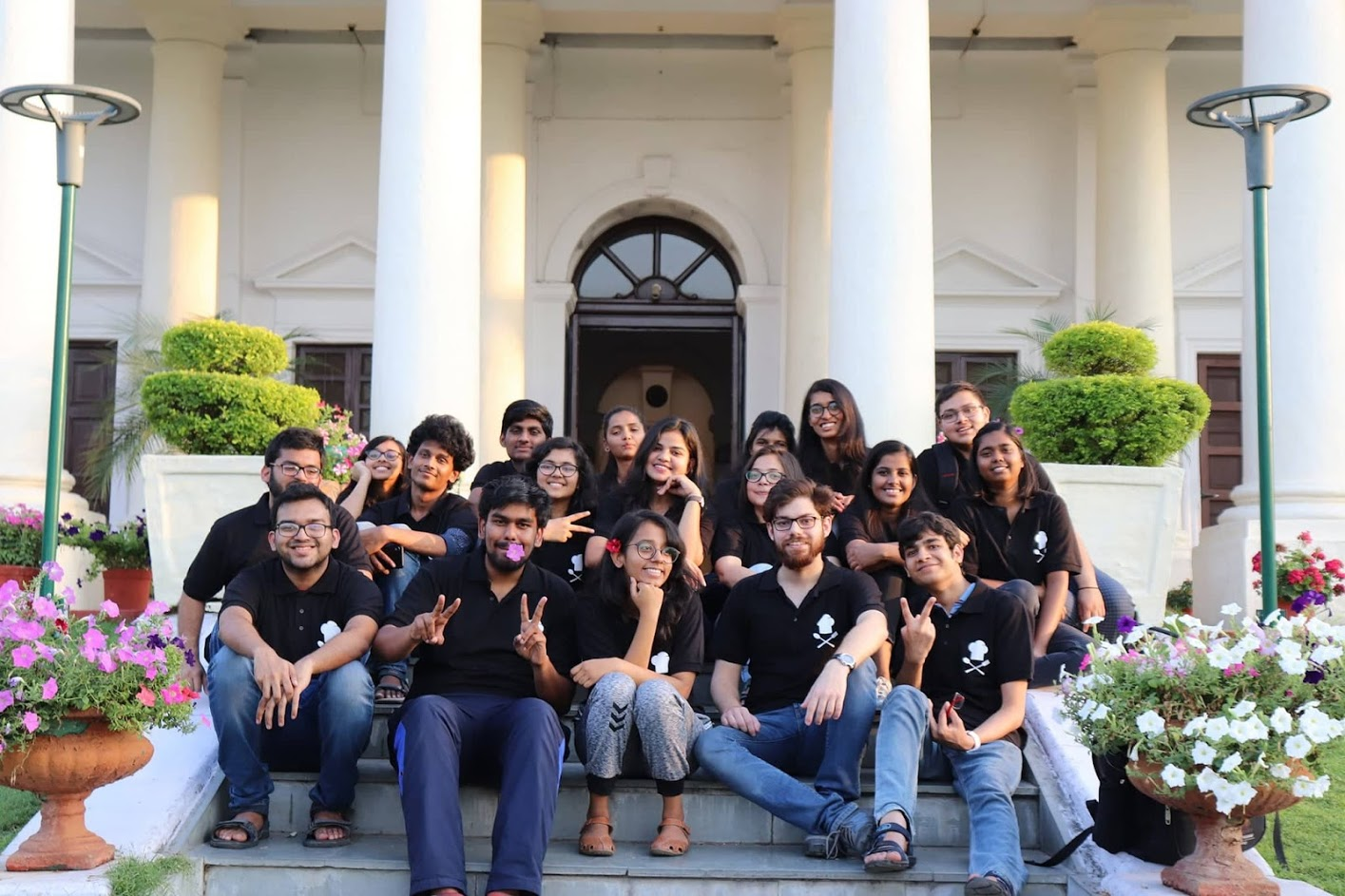
Culinary Club IITR was founded a couple years ago by an adventurous alumnus of ours - Siddharth Sarvanakumar (Batch of 2019, Integrated M.Sc Physics). The members had a lot of hurdles to cross ever since the idea of such a club was incepted in the mind of the founder by a colleague of his from Yale. The club participated in the Inter-IIT (Cult Meet) Culinary Event in 2018 (held in Roorkee), and bulldozed all opposition to secure the top spot. Over the last two years the club has also regularly served dishes at a reasonable rate to the campus junta every weekend. February of this year saw the club organise a remarkable event - ‘Cook Without Fire’, a competition that pits budding campus cooks against each other in a bid to come up with the most delicious dish sans the use of fire.
Watch Out! decided to interview the founder Siddharth Sarvanakumar, and the current quirky secretary Saumya Gupta, to find out more about the kind of challenges they faced, their vision for the club etcetera. Read on to find out more.
1. Siddharth, you founded this club a couple years ago. Could you tell us the inspiration behind setting this up?
Siddharth: I liked cooking right since I was a child but I never thought of it as a viable career option until I actually got into it. Out of all the things that I have tried, I have lost my curiosity for a lot of things but this is one thing which has remained with me ever since it caught my eye, and has in fact led to making me even more curious as I kept on exploring it. So I knew that I wanted to cook but unfortunately the campus had nothing to do with cooking then. This concept was completely blank not only in our college but also in the whole of India in general. During the third year of college I met this student from Yale who said that they had these student-run cafes in their college called “Butteries” - there are like 4 or 5 of them throughout the campus. The interiors are designed by the aspiring architects of the college, the operations are taken care of by the students of the business school, and the staff comprises students who want to cook and earn some pocket money.
Eventually I pitched my own version of this idea to the administration, made a core team, and finally started operations in 2019.The main inspiration was to imbibe Food-Culture in our society(and specifically IITR Junta) - a culture where we can follow our passion for cooking & serve society with our delicacies. It always feels nice to be a part of it. And, if ever again a lost kid like me, who has no aim in life and only a love for cooking ever enters our campus - he/she will have a place to express him/herself :)
2. How does it feel being India’s first student-run cafe and how does it feel to inspire other IITs to start their own culinary clubs there?

Siddharth: Well, when you ask us that question, it feels like there’s a lot of weight in those words. When I talk to people about this, they usually respond with, “Why didn’t my college think of this?”. It’s a very simple concept, but it’s a reflection of how we perceive food. When I came to campus back in 2014, I didn’t fit in anywhere on campus, because I had no interest in coding, physics, and all of the other mainstream things that people do. But during my last 2 years on campus, I felt like I fit into the campus so much, and it was all thanks to this club, and it’s been more of a personal journey for me. And now it’s become this place where people come and experiment with food. We just want India to become more knowledgeable about food.

3. Considering the Culinary Club was incorporated 2 years ago, and is very young, what are the challenges that you have faced trying to run the club?
Saumya: One of the major challenges we face is inventory management - we have to decide and purchase a specific quantity of ingredients that we need everytime we serve food on Sunday, and this can be problematic since we don’t know how many people are going to show up when we open the cafe. And we have to decide which ingredients to use depending on the complexity of the dish. Unfortunately most of the ingredients aren’t available in Roorkee, so we need to order things from Amazon. And very few people know about our group, so, most of the time we end up calling our friends to come and eat, otherwise we wouldn’t be selling anything. With respect to utensils, we get it from the campus. We give them a list of equipment that we need and they provide us with the things. For the operation of the cafe, we put in money from our pockets, sell food, and then we get our money back.
Siddharth: Initially we faced challenges getting clearance from the administration. Since no other IIT or college in India had such a cafe at the time, we found it tough to make them understand why it’s required (they’d say “there’s a reason why it’s not there in other campuses - it’s not a good idea”). We were shooed away a few times and were told that a club for Food wasn’t required, and that there were enough campus activities. Getting the faculty on-board with this idea was the first hurdle. The second hurdle was getting the space after we were made a legitimate campus group. We had to wait a few months or so for the SAC building opposite KB to become functional to claim a space.Fortunately we had a few professors who had supported the whole endeavor. One major thing that helped boost our chances of establishing the club was Inter-IIT because culinary events were included at that time and we thought it would help if we fought for those 100 points.

4. How are your recruitments held, and what do you look for in your recruits? Once the selection process is done, how do you teach and train your young cooks?
Saumya: Students have to apply online via a form that we circulate. They are then called for an interview. We ask the applicants questions about the culinary arts, their hobbies, the time that they can devote to the club, etcetera and then we evaluate them.
5. Have you been working on/do you plan on releasing a cook-book?

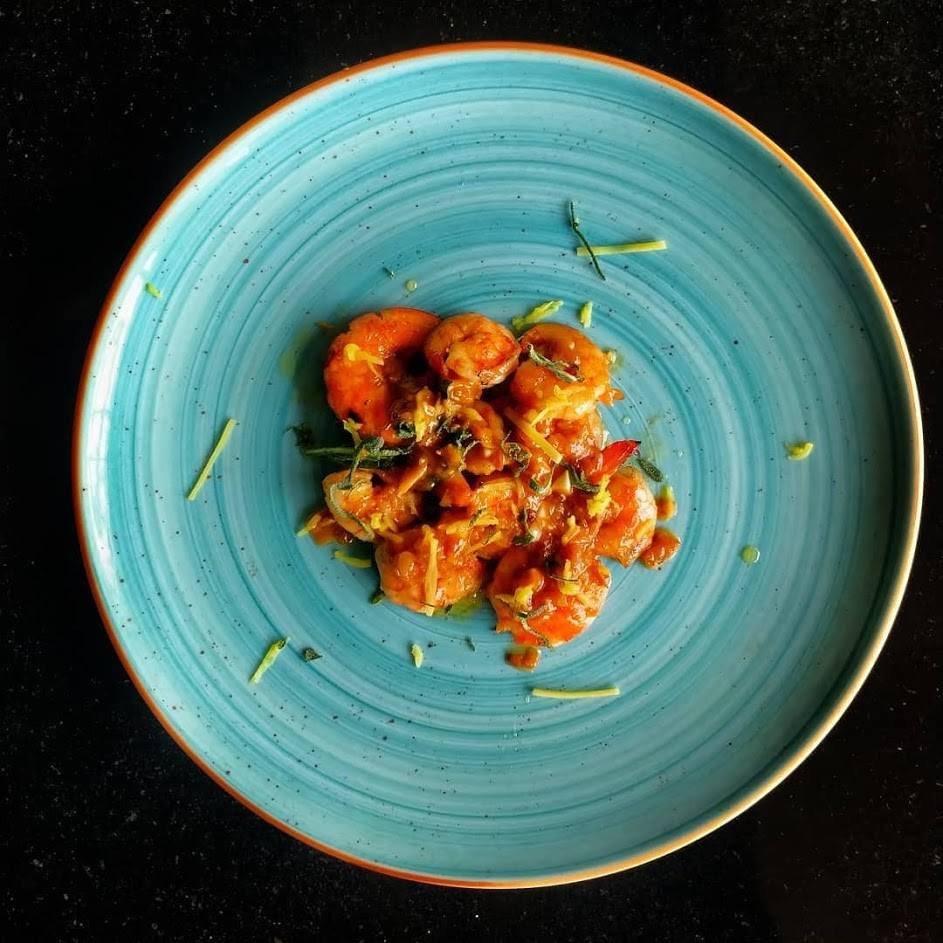
Siddharth: Yes. The plan was to encourage kids to learn their family recipes and I believe that every family has this one recipe that’s unique to them and is passed down, and honestly, I think with our generation a lot of those recipes are going to die out because most of us aren’t that interested in cooking. We are probably going to live off of Zomato, Swiggy and Instant Noodles, and by the time we want to learn from our grandmothers, they’re most probably gone. I learnt to cook from my grandmother, and grandmothers are amazing cooks. I wanted to find those recipes and make a cookbook out of it. It would’ve just been like another magazine where we had the recipe with the name of the student who submitted the recipe. Unfortunately, I didn’t have enough time to complete it because we started gaining momentum during my last few months of college. But I think Saumya would continue with it.
Saumya: We have released a series of blogs on Medium, and this year alone we have posted about 15 recipes, and we are planning to get more of these.We initially had a plan of giving out printed copies like any other campus magazine but as of now we’re regularly pushing recipes on our medium page.
6. Could you tell us more about the weekend dish you serve? How do you decide the pricing of the food you serve every Sunday?
Saumya: We have at least 2 meetings a month where we decide on 2 dishes. We then divide the work amongst the people by assigning roles to everyone. We buy the ingredients from the market,sometimes if a dish needs a special ingredient, we’ll need to order it online, and then we just add a profit margin of Rs. 2-5 for one serving.
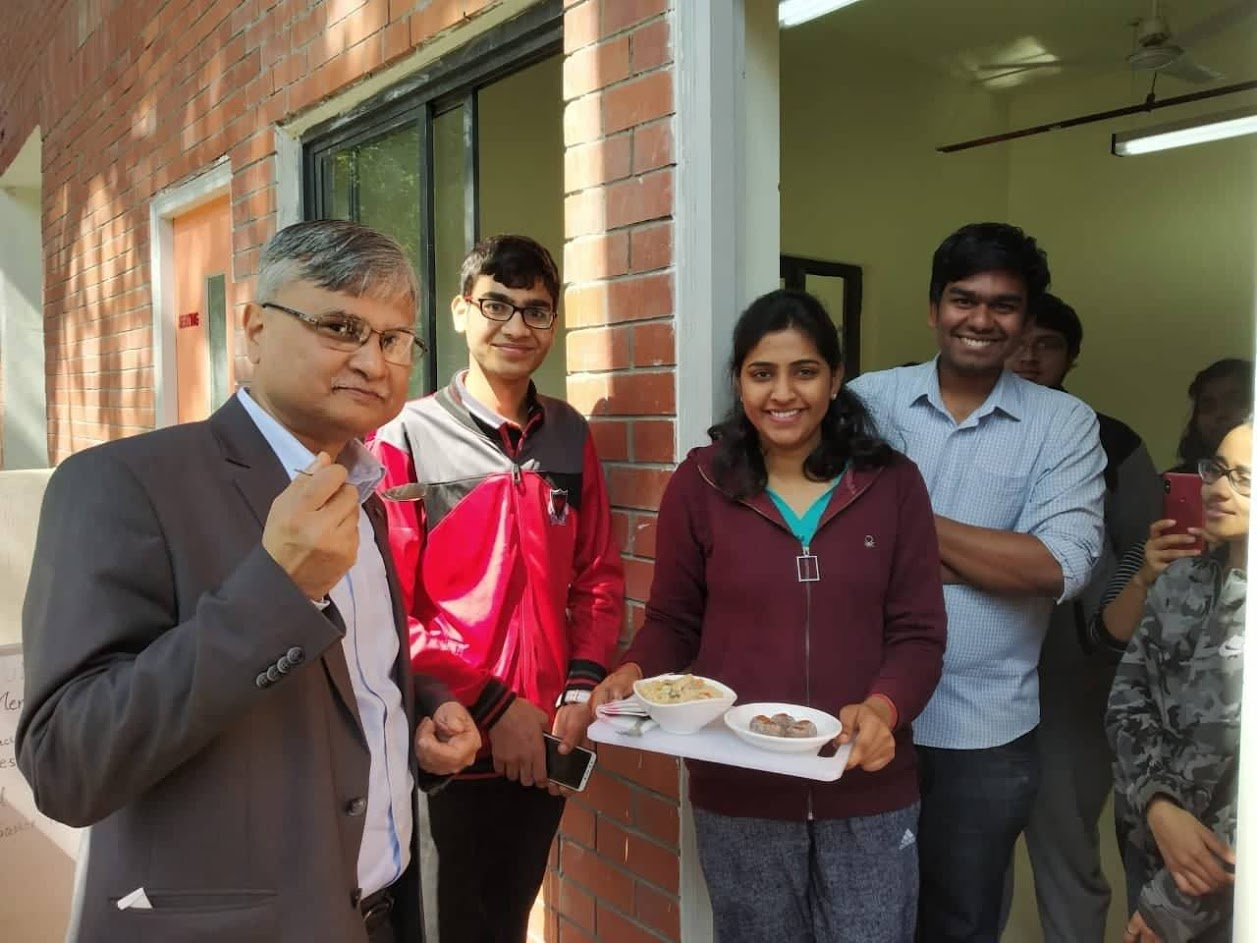
7. You recently held a ‘Cook Without Fire’ event in February. How are such endeavours undertaken and what sort of planning goes into the same?
Saumya: A lot of planning actually goes into these events. First we have to decide the event’s schedule, location and rules. Then we have to get approval from the administration. After that we decide on the ingredients for the event, then we purchase those ingredients, advertise the event, and contact the judges. We do provide a tentative list of ingredients that would be available to the participants, but they are free to bring their own ingredients as per the dish that they plan on making. We then divide the work amongst our members, where some would deal with the judges, while the others would deal with logistics. We have to make sure that the ingredients don’t get wasted and also be prepared to run to the market if we need anything else.
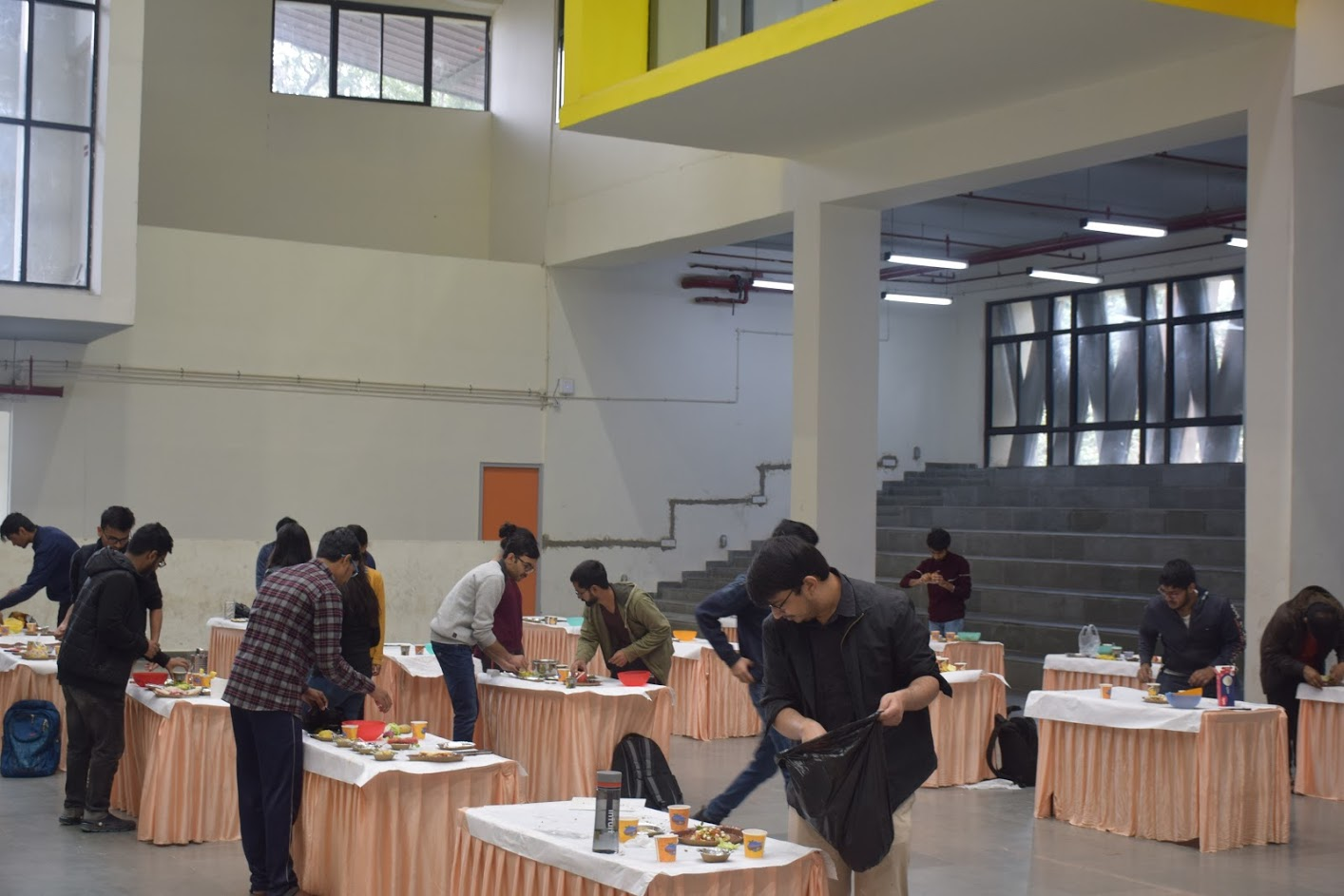
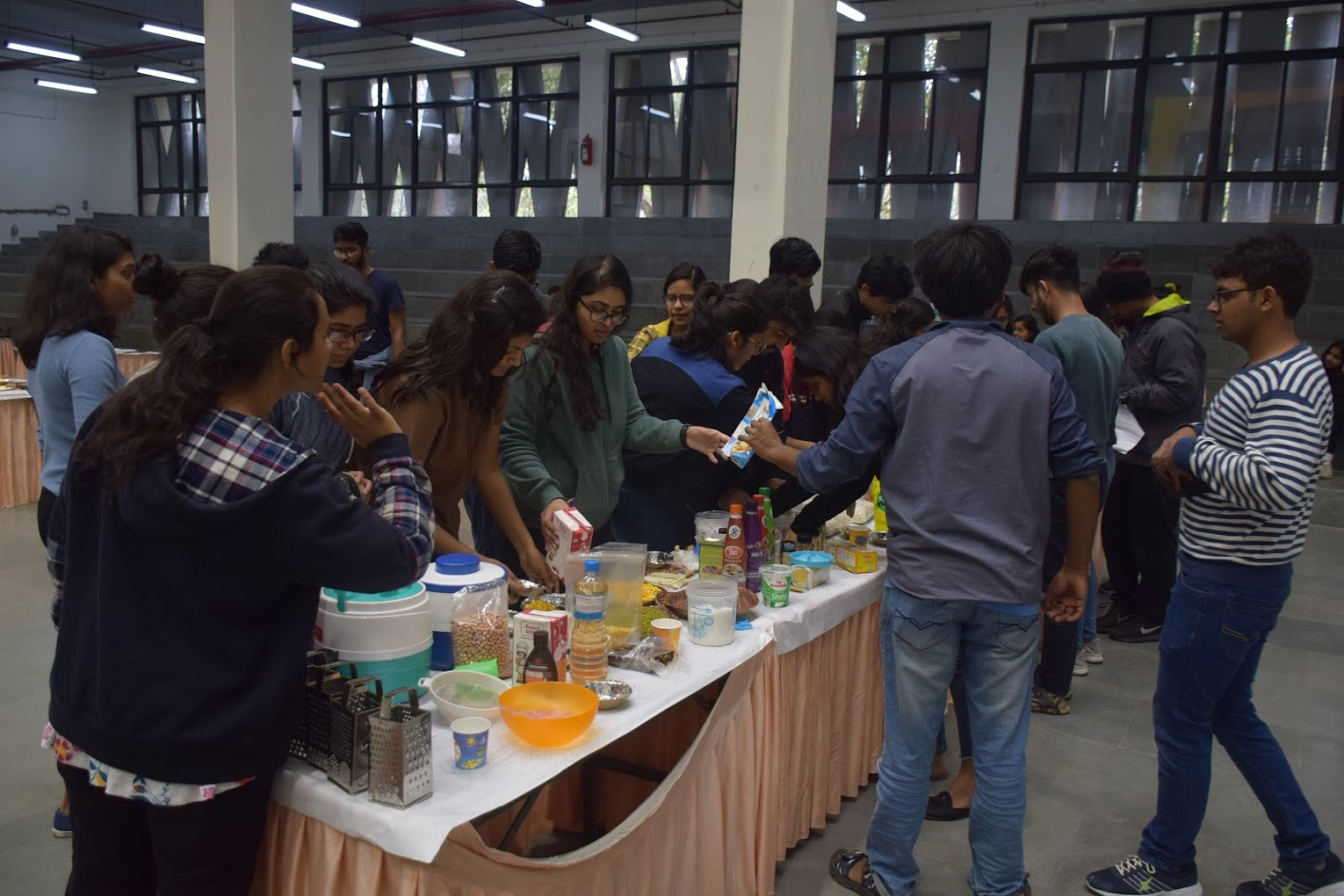
8. Have you ever had a Gordon Ramsay moment in the club?
Siddharth: As in shout at each other? Just leave Vishal Goddu (another culinary enthusiast from Roorkee) and Saumya in the cafe with some raw ingredients, and you’re in for a lot of Ramsay moments.
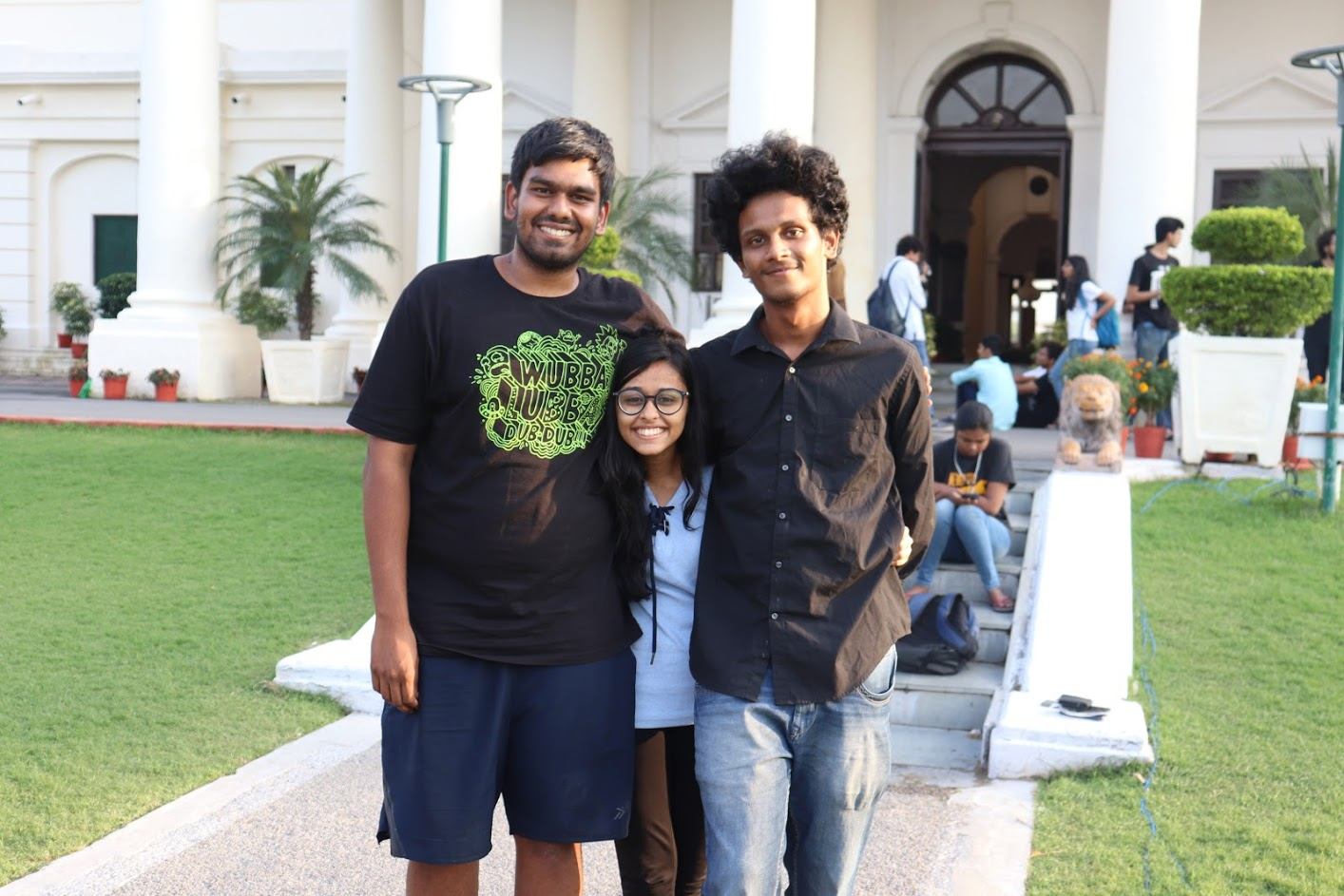
9. Has there ever been a moment in the club where you paid attention to the science behind cooking and came up with a crazy idea that people would not think of, to fix a mistake or come up with an entirely new dish or a really cool moment like that (like the scene from House M.D or Food Wars)?
Siddharth: Well, even when you bake a cake there’s science involved. A lot of things that we take for granted in cooking does involve science. We always used to experiment with food.. Even if we want to make an ice cream, we can use the concept of how milk solids react at low temperatures to form a kind of fluffy bond. An interested kid would do it. Usually the plan gets messed up and we aren’t able to experiment with dishes when we’re serving, but when we’re by ourselves, then we experiment with various techniques. We had these workshops on campus. In one of these workshops we were explaining this four course meal, where we spoke about why whisking a fat and an acid, a vinaigrette, in a salad works, like lemon juice or basic vinegar with egg-yolks and oil whisked with some spices to make a vinaigrette and then spoke about the main course which was a white sauce pasta, where we spoke about what happens when a flour and a fat combine. When you combine butter and flour, it’s called a roux, and then we add milk to form the white sauce. Which is called a Béchamel sauce and then you add that to your pasta. And then we went to desserts, and then I remember that I was talking about how to make soups, but sadly I had chopped my finger at that time. It depends on the students if they want to experiment. But it works, even if one person wants to cook, it works.
We did use science to innovate with our dish with my scottish egg that won the InterIIT back in 2018.
We were working on dishes with eggs as the main ingredient. Scottish eggs are a popular dish where soft boiled eggs are fried with a covering of patty - the eater expects liquid yolk to ooze out when he breaks the patty-egg white coating. I wanted to elevate the experience, so I used a syringe to remove the liquid yolk from the outer egg white, and immediately filled it in with liquid cheese infused with thyme and pepper. Accompanying this entree was an egg yolk ravioli, to compensate for the yolk running out moment that would have otherwise been in a normal scottish egg. (Are you getting it? Yolk oozing out is a culinary delight, but a scottish egg that has cheese oozing out still leaves the judge wanting for the yolk ooze! Hence the egg yolk ravioli that was basted with a little butter)
10. What are your future goals with respect to the Culinary Club and where do you see the Club in the future?
Saumya: The main aim we had when the club was founded was to foster this culinary culture in our country and with regard to this, a lot of colleges have contacted us : IIT-KGP, IIT-K, IIT-BHU, etcetera have spoken to us and they have inquired about how we established the club, and the various problems that they might face if they chose to do the same. We were really happy when we heard that other IITss had opened their own culinary clubs, and well, this was our goal from the start.
Back when this lockdown started, we started this initiative where we asked students of IITR to send us pictures of the food that they made at home and it turned out great - we received around 200+ entries and we even gave feedback to a lot of students by just looking at their dishes : some tips and tricks for their dish so that they can make it better.
We are trying to increase our presence in the campus. We are planning on organizing a lot of events on campus in the coming year: A three-course meal event where each course would be a different Indian regional dish, a sweet-foods fest , Bhawan-level events like salad-fiesta. We had a talk with the International Relation cell and we are planning an international cuisine competition next semester.
